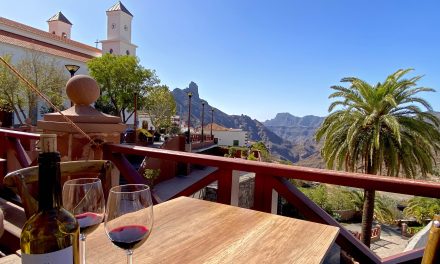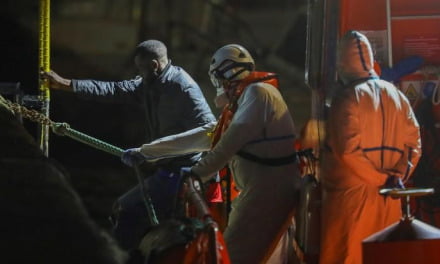**UPDATED** UK press reported early today that their government were not likely to add any new countries to the British travel “green list” leaving many in The Canary Islands region hoping they might yet stand a chance of being included, despite the rest of Spain missing out. Those hopes have now been dashed.
The UK’s Joint Biosecurity Centre met on Wednesday to present their risk assessment based on 7-day & 14-day accumulated incidence, infection rates, risks of Covid variant transmission, testing, the proportions of positive active cases, and genomic sequencing capability, as well as the roll out of vaccines for each territory. All of these indicators have been moving positively for the last month or so on Gran Canaria and The Canary Islands in general. The UK foreign office continue to exclude The Canary Islands from their advice not to travel to Spain.
 Boris Johnson’s Ministers today made their decisions based on that risk assessment, alongside other public health considerations, in what is still a developing situation.
Boris Johnson’s Ministers today made their decisions based on that risk assessment, alongside other public health considerations, in what is still a developing situation.
The full announcement for the first travel list update was confirmed this afternoon.
While many have been holding their breath, hoping that the new list may soon include popular destinations like Spain, the United Arab Emirates, the USA, Italy, Cyprus and Greece, as well as Moldova, Bulgaria and Canada, reports confirm now that this will not happen this time round.
The Canary Islands however still had some reason to be quietly hopeful, based on the extraordinary amount of work that has gone into keeping infection rates low, updating and improving regional tourism legislation, and through the direct back channelling that has occurred between Canary Islands Tourism Minister, Yaiza Castilla and her counterparts in London, circumventing much of the grindingly slow communications between the UK and the Spanish Central Government in Madrid.
Portugal, the only major UK tourism destination that was cleared for travel, has been recategorised onto the amber list, which leaving Iceland as the only remaining country on the green list that is accepting UK tourists, along with Gibraltar.
The changes announced this afternoon, will take effect from next Tuesday morning, so there is plenty of time for those who are currently holidaying in Portugal now to get back.
Anyone returning after June 8 would be required to self-isolate at home for 10 days, if coming from an Amber List destination. Though early reports say that flights back from Portugal are currently extremely expensive.
The UK lists are updated every three weeks based on continuous monitoring of the data. This was the first update since the lists were originally announced and has proven for many a disappointment, after it was thought that the green list would in fact be expanded rather than reduced.
Had the archipelago got a lucky break, against all the odds, it would have been a massive relief after what has been a most strenuous effort to ensure our “safe travel destination” credentials stand out compared with other top holiday spots.
Alex Bramwell from Gran-Canaria-Info.com says:
“The people of the Canary Islands have handled the biggest disaster in their history like champions, put in a huge amount of work to improve the place, and can’t wait to welcome the British back.”
The last fourteen months, or so, have not been easy, despite the near constant sunshine, and balmy temperatures averaging 24oC in the shade. Yet in spite of empty southern streets and closed bars and restaurants, the island communities have adapted well with their certain amount of survival skills, necessary to live on these small sunny islands off the coast of Africa.
The region generates more than 35% of its GDP and 40% of employment, feeding 60% of the population, from tourism alone, and so from the first moments of the pandemic the Minister for Tourism, Yaiza Castilla, has taken a leading role in developing protocols to help us deal with COVID-19.
Business leader and multi award winning event planner Bernie Garside, from The Perfect Wedding Company says she is:
“so proud of how everyone has worked together, and got on with implementing all the restrictions to keep our numbers really low, now we have a safe destination ready to open for holiday makers”, and she can get back to making dreams come true.
 “What has characterised The Canary Islands is their control of the pandemic” says Castilla “infection rates are much lower than the average for European territories.” She has focused on trying to make sure this was the very first Spanish destination to present Safe-Tourism credentials, to ensure confidence for our more than fifteen million regular annual visitors, up until 2020, nearly five million of whom were British.
“What has characterised The Canary Islands is their control of the pandemic” says Castilla “infection rates are much lower than the average for European territories.” She has focused on trying to make sure this was the very first Spanish destination to present Safe-Tourism credentials, to ensure confidence for our more than fifteen million regular annual visitors, up until 2020, nearly five million of whom were British.
“As islands, our remoteness from mainland Spain has certainly had an impact on this, making it possible to control ports and especially airports, the main routes of entry for travellers.” says the minister responsible for Britain’s favourite sub-tropical destination.
The Canary Islands rejected curfews, and have imposed very few restrictions like social distancing or mask wearing, except when moving around in public places. Keeping space around you means you don’t need to wear them lying on the beach or at the pool. A 30€ test is all that will be needed for unvaccinated visitors from safe countries, like Britain, to stay in a hotel, and that can be done on arrival. The Regional Government is on track to vaccinate 70% of the population by August.
Top local performer, Jaz Alice says:
“Gran Canaria is wonderful. Lots of businesses have used this time to renovate and renew their venues which is great news for holiday makers as this means there is already better quality, safer and fresher places to visit. I can’t wait for the inevitable buzz that Gran Canaria will have.”
Many of the businesses and excursion operators here on the islands have been diligent in trying to adapt to all the new rules, after nearly 14 months without any business, they are hungry to try to get back to what The Canary Islands do best, and that is welcome people warmly. What tourists have made it here have also been happy to comply with the necessary restrictions.
Wendie & Potter who operate the Afrikat69 catamaran excursion report:
“people seem to be respecting and understanding the rules we have over here in GC. On the boat we have a mixture of bar rules and beach rules. We have adjusted our boat to Covid with a buzzer system which allows people to have table service or at least service to their sunbed.”
“All these measures have meant that the incidence of the pandemic has been almost nil in island tourist environments and of course much lower than in mainland Spain” said Castilla in her statement to TheCanaryNews
Of her work on British tourism the Regional Tourism Minister said last week “We have been talking to whoever we need to for more than a year, without waiting in many cases for the talks to take place in the bilateral Spain-Great Britain framework.” Despite our amber traffic light listing from Boris Johnson’s Government she says “the latent demand is intense. We are going to redouble our efforts so that the Canary Islands are evaluated individually, separately from the rest of Spain.”
The Canary Islands Accumulated Incidence of infections over 7-days now stands at less than 33 per 100 thousand population, almost all the islands have a lower incidence, with Gran Canaria’s infection rate at just over half that at 17.4 per 100 thousand. Over the last 14 days Gran Canaria’s AI continues to decrease to now just 40 per 100 thousand, with less than 1.5% of cases anywhere near the southern tourism heartlands of Maspalomas or Mogán. If anywhere is safe to travel to it is these “fortunate islands”.
Boris and his Ministers have caused widespread disappointment, through erring on the side of caution, when most here on the islands felt we had at last done enough to be able to welcome back our British friends this summer.
While British tourists are still able to come here without testing, the must still present a test or vaccine certificate to check in to tourist accommodations, and must test and quarantine for up to ten days upon return.










